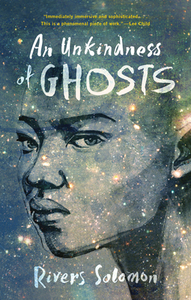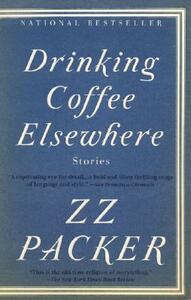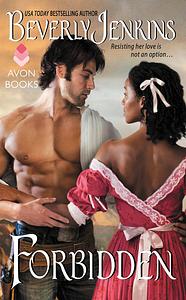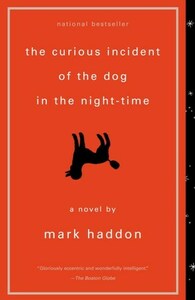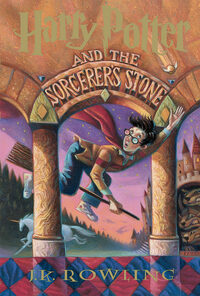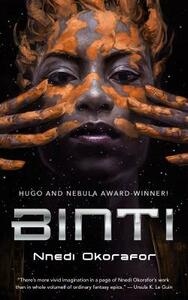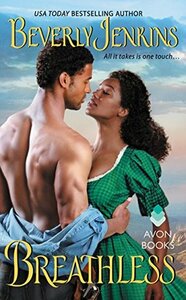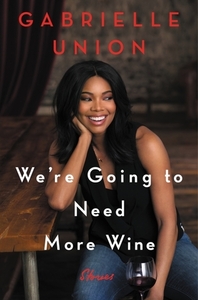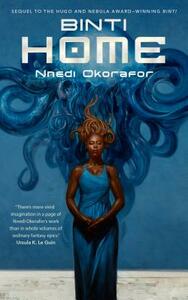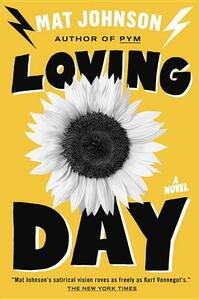You need to sign in or sign up before continuing.
Take a photo of a barcode or cover
introvertinterrupted's Reviews (1.08k)
A lot of these stories just petered off and seem to either over shoot the medium the author used or are just underwhelming over all. Out of the collection of stories, I only really enjoyed “Brownies,” “Our Lady of Peace,” and “The Ant of the Self.”
“Brownies” tells the story of an elementary aged group of Black girls who are on their annual Brownie Scouts retreat and have a run in with an all-white Brownie Scout group. The story worked due to Z. Z. Packer’s skilled use of slowly etching out characters and revealing just enough to the readers as needed until the “big reveal.” This allows Packer’s simple story about peer pressure to turn into a grander story that’s multifacted and tackles a myriad of topics that include racism, losing your parents as “heroes,” and even on to the traditional message of trusting your own voice in a crowd. While simple, this story felt like a good opener to the collection. Sadly, Packer doesn’t deliver on the promise this story offers throughout the collection.
“Our Lady of Peace” was a somber, but laughable tale of a woman who leaves her small town to go to Baltimore and teach inner city kids on a whim. Simple clean cut story, but the way Packer handles the tale felt almost like a detailed character story in less than ten pages. Unlike the other eight stories, this story felt like it had a clear beginning, middle, and an end along with an actual purpose to being told by the author. This was a standout story for this reason because a lot of the stories in the collection felt like a waste because they lacked a clear intent for me as a reason. Packer managed to make me care about this character in the short story in a small amount of time I knew the woman and I was legit mad she chose to give another character a follow up story opposed to the main character in this story since her story was so compelling.
Lastly, “The Ant of the Self” did a good job catching emotions similar to the way the “Our Lady of Peace” story did. Yet, unlike the aforementioned story, the ending wasn’t as tidy, but it was understandable in this case since the chaos of the ending adds to the tumultuous narrative of an estranged father and son who find themselves selling birds at the Million Man March to make some quick cash. This story displays the rage that a child could possibly feel at being left behind by their parent who flits in and out their lives and only brings chaos when they reappear. I enjoyed the way Packer uses this story to provide commentary about the Black man and his role in the community and the Black family and the irony she lends to this topic through her characters.
If you want to read a better and more cohesive collection of short stories by an African-American auhor, is suggest J. California Cooper’s [b: Homemade Love|188238|Homemade Love|J. California Cooper|https://images.gr-assets.com/books/1388362306s/188238.jpg|181952], which is a collection of stories that does character study extremely well and balance morality, pop culture topics, and humor evenly.
“Brownies” tells the story of an elementary aged group of Black girls who are on their annual Brownie Scouts retreat and have a run in with an all-white Brownie Scout group. The story worked due to Z. Z. Packer’s skilled use of slowly etching out characters and revealing just enough to the readers as needed until the “big reveal.” This allows Packer’s simple story about peer pressure to turn into a grander story that’s multifacted and tackles a myriad of topics that include racism, losing your parents as “heroes,” and even on to the traditional message of trusting your own voice in a crowd. While simple, this story felt like a good opener to the collection. Sadly, Packer doesn’t deliver on the promise this story offers throughout the collection.
“Our Lady of Peace” was a somber, but laughable tale of a woman who leaves her small town to go to Baltimore and teach inner city kids on a whim. Simple clean cut story, but the way Packer handles the tale felt almost like a detailed character story in less than ten pages. Unlike the other eight stories, this story felt like it had a clear beginning, middle, and an end along with an actual purpose to being told by the author. This was a standout story for this reason because a lot of the stories in the collection felt like a waste because they lacked a clear intent for me as a reason. Packer managed to make me care about this character in the short story in a small amount of time I knew the woman and I was legit mad she chose to give another character a follow up story opposed to the main character in this story since her story was so compelling.
Lastly, “The Ant of the Self” did a good job catching emotions similar to the way the “Our Lady of Peace” story did. Yet, unlike the aforementioned story, the ending wasn’t as tidy, but it was understandable in this case since the chaos of the ending adds to the tumultuous narrative of an estranged father and son who find themselves selling birds at the Million Man March to make some quick cash. This story displays the rage that a child could possibly feel at being left behind by their parent who flits in and out their lives and only brings chaos when they reappear. I enjoyed the way Packer uses this story to provide commentary about the Black man and his role in the community and the Black family and the irony she lends to this topic through her characters.
If you want to read a better and more cohesive collection of short stories by an African-American auhor, is suggest J. California Cooper’s [b: Homemade Love|188238|Homemade Love|J. California Cooper|https://images.gr-assets.com/books/1388362306s/188238.jpg|181952], which is a collection of stories that does character study extremely well and balance morality, pop culture topics, and humor evenly.
The story was pretty 🤷🏿♀️ meh for about 3/4 of the book up until the end when most of the action took place.
In short, the book boils down to the male and female protagonists giving each other sultry looks across a room for half the book and the other characters nudging them together while trying to simultaneously keep them a part....shrug.....and then they get together and live happily ever after. The issue of the male protagonists is handled neatly without the fuss and danger one would expect from the time period and the total sum of warnings that the other characters gave him to keep quiet. This seems like the least believable detail of the story and made me side eye the heck out of this romance novel, but I digress...
I honestly think Beverly Jenkins must have phoned this one in because the writing and plot was not up to her usual intense and knowledge rich dialogue or even the sultry and passionate love scenes I love come to know her for. Everything in the novel felt lukewarm and almost like a setup for the next two book in the Old West series. I hope those two are better than this one yet, the bar wasn’t set too high so I’ll set my expectations accordingly.
I honestly think Beverly Jenkins must have phoned this one in because the writing and plot was not up to her usual intense and knowledge rich dialogue or even the sultry and passionate love scenes I love come to know her for. Everything in the novel felt lukewarm and almost like a setup for the next two book in the Old West series. I hope those two are better than this one yet, the bar wasn’t set too high so I’ll set my expectations accordingly.
I gave this book 2.5 stars.
This review is not meant to be offensive to anyone with special needs. They are my opinions of a fictional individual and not the ones that I share of a group of people at large.
[This has to be said since people can't seem to separate a critique of a fictional person from my opinion of a group of real people who have a disorder. 🙄😤😒]
I picked this book up about 3 or 4 years ago as a pleasure read and put it down after a few pages because I wasn't really connecting to the story or the characters. Recently, it got added to my required reading list and I was forced to give it another go.
My overal opinion of this book is that it is a tedious read. Haddon makes it extremely hard not to become frustrated with his main character, Christopher and his method of story telling. While it is understood that Christopher is Autistic, his character wears thin on the nerves after just a few pages. I didn't outright hate this book, but there were many things that were frustrating such as, the idea that Christoper would be given a weapon if he is unfit to identify other people's emotions. This baffled me to no end. Why would someone give an emotionally impaired/behaviorally/emotionally impaired person a weapon knowing that they can't discern whether the people around them are trying to harm or help them? Also, the idea that this character would be given as much freedom as he is given and not watched more carefully was odd. I know you don't want to smother your child, but if they can be a danger to themselves or others wouldn't it be better to make sure that they are well watched at all times?
Christopher also reminds me of a special needs version of Holden Caulfield. He has many problems with the world at large and reasons that everything can be done in a logical manner yet, his own actions render this idea void making the character a contradiction. For example, he decides to runaway to London knowing that he can't take the pressures of the outside world nor, does he like to be around strangers. Therefore, his misadventure does not sway me one way or another except in the one instance where he is almost run over by a train trying to save his pet rat.
This book is pegged as a mystery, which plays up to be a gimmick since there is only one real mystery in the story that gets solved halfway thought the book and another mystery that gets presented to Christopher in its place. This in itself wouldn't be so bad if, the readers wasn't being dragged along with the character already knowing exactly how things will turn out. However, I guess the real mystery in the story is Christopher finding out how the world and other people work. Therefore, I would caution others against reading this book if they are expecting a proper mystery.
If I am honest with myself, I wouldn't have continued this book if I was given a choice. The narrative was tedious and repetitive, I didn't truly care for the character, and the action in the story is sporadically interesting with huge lapse in the plot. I get that the book is written from a perspective of a person who has special needs however, he is very unlikeable in the way he describes other people and their beliefs. If it seemed as if Christopher was remorseful of the way he negatively described his classmates or behaved, I would've reacted to this story differently, but the way that Haddon writes his novel makes it appear as if Christopher is in full control of his actions and behavior. This consciousness no matter how small makes me feel that Christopher is knowingly being surly opposed to acting out because he is ill.
This review is not meant to be offensive to anyone with special needs. They are my opinions of a fictional individual and not the ones that I share of a group of people at large.
[This has to be said since people can't seem to separate a critique of a fictional person from my opinion of a group of real people who have a disorder. 🙄😤😒]
I picked this book up about 3 or 4 years ago as a pleasure read and put it down after a few pages because I wasn't really connecting to the story or the characters. Recently, it got added to my required reading list and I was forced to give it another go.
My overal opinion of this book is that it is a tedious read. Haddon makes it extremely hard not to become frustrated with his main character, Christopher and his method of story telling. While it is understood that Christopher is Autistic, his character wears thin on the nerves after just a few pages. I didn't outright hate this book, but there were many things that were frustrating such as, the idea that Christoper would be given a weapon if he is unfit to identify other people's emotions. This baffled me to no end. Why would someone give an emotionally impaired/behaviorally/emotionally impaired person a weapon knowing that they can't discern whether the people around them are trying to harm or help them? Also, the idea that this character would be given as much freedom as he is given and not watched more carefully was odd. I know you don't want to smother your child, but if they can be a danger to themselves or others wouldn't it be better to make sure that they are well watched at all times?
Christopher also reminds me of a special needs version of Holden Caulfield. He has many problems with the world at large and reasons that everything can be done in a logical manner yet, his own actions render this idea void making the character a contradiction.
This book is pegged as a mystery, which plays up to be a gimmick since there is only one real mystery in the story that gets solved halfway thought the book and another mystery that gets presented to Christopher in its place. This in itself wouldn't be so bad if, the readers wasn't being dragged along with the character already knowing exactly how things will turn out. However, I guess the real mystery in the story is Christopher finding out how the world and other people work. Therefore, I would caution others against reading this book if they are expecting a proper mystery.
If I am honest with myself, I wouldn't have continued this book if I was given a choice. The narrative was tedious and repetitive, I didn't truly care for the character, and the action in the story is sporadically interesting with huge lapse in the plot. I get that the book is written from a perspective of a person who has special needs however, he is very unlikeable in the way he describes other people and their beliefs. If it seemed as if Christopher was remorseful of the way he negatively described his classmates or behaved, I would've reacted to this story differently, but the way that Haddon writes his novel makes it appear as if Christopher is in full control of his actions and behavior. This consciousness no matter how small makes me feel that Christopher is knowingly being surly opposed to acting out because he is ill.
The second time I read this I read it in audiobook form with the magnificent narration of Robin Miles reading Binti’s story.
I found the first installment in the story to be a bit dry. However, I did like the depiction of an immigrant moving to a new place and seeing how Nnedi Okorafor tackles the issue of how these individuals are sometimes unfairly asked to strip themselves of their cultures to fit into their new space. Binti’s character does a good job showing this struggle.
While not extremely excited about this first book in the series, I’ll definitely read the rest of the series.
I found the first installment in the story to be a bit dry. However, I did like the depiction of an immigrant moving to a new place and seeing how Nnedi Okorafor tackles the issue of how these individuals are sometimes unfairly asked to strip themselves of their cultures to fit into their new space. Binti’s character does a good job showing this struggle.
While not extremely excited about this first book in the series, I’ll definitely read the rest of the series.
I received a copy of this book from Netgalley and Tor in exchange for an honest review. All opinions are my own and are in no way hindered or helped by this fact.
I was pleasantly surprised this second installment in the Binti series. Upon reading the first book, I felt as if the Nnedi Okorafor started her story in the middle and that the ending was rushed, but with this book, the story was rounded out and the questions I initially had about the world in which Binti lives were answered.
This book seems to represent the idea of the immigrant's struggle to exist between worlds once they have left home and then return. For the character of Binti, the drastic changes she went through in book one are highlighted by Okorafor as something that makes Binti different in a negative way amongst her tribe and a hero to a small set of other characters. Yet, Binti is unsure of who she is to herself. This uncomfortablity with being "different" are what really drives this second book and helps propel the action of the book.
Writing wise, I believe that this is Okorafor's best book yet. I've read [b: Binti|25667918|Binti (Binti, #1)|Nnedi Okorafor|https://images.gr-assets.com/books/1433804020s/25667918.jpg|45491127] and [b: Lagoon|18753656|Lagoon|Nnedi Okorafor|https://images.gr-assets.com/books/1383619801s/18753656.jpg|26643213] and found both books to be decent books, but on their own neither were special in terms of the writing or due to the plot. With [b: Binti: Home|30038654|Home (Binti, #2)|Nnedi Okorafor|https://images.gr-assets.com/books/1470413227s/30038654.jpg|50442846], I was pulled in instantly. I wanted more and am glad I waited until the third book in the series came in because I want more right now.
Based on this book, I'd definitely read more of Okorafor's writing and would highly recommend the Binti series with the caveat that, "it gets better if you keep reading." Likewise, the book doesn't take long to read and you could even read book one and two in the series in one sitting if you're feeling up to it since the books collectively are about the length of the average book (approx. 272 pages).
I was pleasantly surprised this second installment in the Binti series. Upon reading the first book, I felt as if the Nnedi Okorafor started her story in the middle and that the ending was rushed, but with this book, the story was rounded out and the questions I initially had about the world in which Binti lives were answered.
This book seems to represent the idea of the immigrant's struggle to exist between worlds once they have left home and then return. For the character of Binti, the drastic changes she went through in book one are highlighted by Okorafor as something that makes Binti different in a negative way amongst her tribe and a hero to a small set of other characters. Yet, Binti is unsure of who she is to herself. This uncomfortablity with being "different" are what really drives this second book and helps propel the action of the book.
Writing wise, I believe that this is Okorafor's best book yet. I've read [b: Binti|25667918|Binti (Binti, #1)|Nnedi Okorafor|https://images.gr-assets.com/books/1433804020s/25667918.jpg|45491127] and [b: Lagoon|18753656|Lagoon|Nnedi Okorafor|https://images.gr-assets.com/books/1383619801s/18753656.jpg|26643213] and found both books to be decent books, but on their own neither were special in terms of the writing or due to the plot. With [b: Binti: Home|30038654|Home (Binti, #2)|Nnedi Okorafor|https://images.gr-assets.com/books/1470413227s/30038654.jpg|50442846], I was pulled in instantly. I wanted more and am glad I waited until the third book in the series came in because I want more right now.
Based on this book, I'd definitely read more of Okorafor's writing and would highly recommend the Binti series with the caveat that, "it gets better if you keep reading." Likewise, the book doesn't take long to read and you could even read book one and two in the series in one sitting if you're feeling up to it since the books collectively are about the length of the average book (approx. 272 pages).
I gave this book 2.5 stars.
I kept hoping this book would have some type of satire or actual speculative fiction element, but instead it was written as normal run of the mill male “chick lit.”
The handling of “mulatto” hardships felt hamfisted and cringe worthy based on how unrealistic the plot of a mixed cult seemed in our current world and therefore, I had to shave off a star for the lack of plausibility. Likewise, the daughter and father in this story felt like they’d been written in an aimless manner making the reading of this book a chore once you get pass the beginning third of the book. I will give Mat Johnson a little leeway on the Dad, who was named Warren, since he seemed like his character was going somewhere in the hundred or so pages, but then the action and agency of the character withered and it felt as if the whole narrative lost steam since at that point of the book, everyone took to walking all over Warren.
Yet, this book could’ve been trimmed by a cool 150 pages and readers would’ve ended up getting the gist much quicker. I would still recommend the book if you want an interesting perspective on the idea of what it means to be of “mixed race,” but I’d also caution you not to get your hopes up with this one.
I kept hoping this book would have some type of satire or actual speculative fiction element, but instead it was written as normal run of the mill male “chick lit.”
The handling of “mulatto” hardships felt hamfisted and cringe worthy based on how unrealistic the plot of a mixed cult seemed in our current world and therefore, I had to shave off a star for the lack of plausibility. Likewise, the daughter and father in this story felt like they’d been written in an aimless manner making the reading of this book a chore once you get pass the beginning third of the book. I will give Mat Johnson a little leeway on the Dad, who was named Warren, since he seemed like his character was going somewhere in the hundred or so pages, but then the action and agency of the character withered and it felt as if the whole narrative lost steam since at that point of the book, everyone took to walking all over Warren.
Yet, this book could’ve been trimmed by a cool 150 pages and readers would’ve ended up getting the gist much quicker. I would still recommend the book if you want an interesting perspective on the idea of what it means to be of “mixed race,” but I’d also caution you not to get your hopes up with this one.
